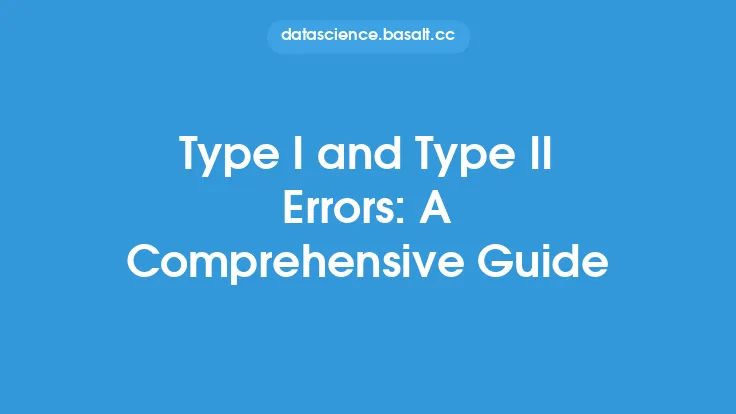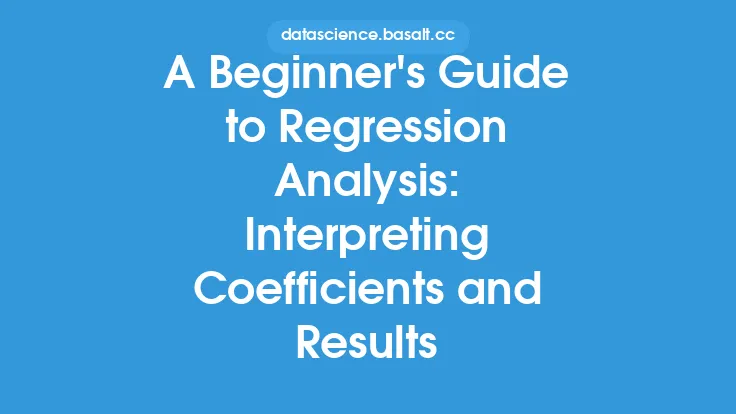Probability theory is a branch of mathematics that deals with the study of chance events and their likelihood of occurrence. It provides a mathematical framework for analyzing and modeling random phenomena, and it has numerous applications in fields such as statistics, engineering, economics, and computer science. One of the fundamental concepts in probability theory is conditional probability, which is a measure of the probability of an event occurring given that another event has occurred. In this article, we will delve into the concept of conditional probability and independence, and explore their significance in probability theory.
Introduction to Conditional Probability
Conditional probability is a measure of the probability of an event occurring given that another event has occurred. It is denoted by P(A|B), which is read as "the probability of A given B". The concept of conditional probability is based on the idea that the probability of an event can change depending on the occurrence of another event. For example, the probability of it raining tomorrow may be 0.5, but if we know that it is cloudy today, the probability of it raining tomorrow may increase to 0.7. In this case, the probability of it raining tomorrow is conditional on the event of it being cloudy today.
Definition of Conditional Probability
The conditional probability of an event A given an event B is defined as:
P(A|B) = P(A ∩ B) / P(B)
where P(A ∩ B) is the probability of both events A and B occurring, and P(B) is the probability of event B occurring. This definition provides a mathematical framework for calculating conditional probabilities, and it has numerous applications in probability theory and statistics.
Properties of Conditional Probability
Conditional probability has several important properties that make it a useful tool in probability theory. Some of these properties include:
- Multiplication rule: P(A ∩ B) = P(A|B)P(B)
- Law of total probability: P(A) = P(A|B)P(B) + P(A|B')P(B')
- Bayes' theorem: P(A|B) = P(B|A)P(A) / P(B)
These properties provide a framework for calculating conditional probabilities and for updating probabilities based on new information.
Independence of Events
Two events A and B are said to be independent if the occurrence of one event does not affect the probability of the other event. In other words, if P(A|B) = P(A), then events A and B are independent. Independence of events is an important concept in probability theory, as it allows us to simplify calculations and to model complex systems.
Definition of Independence
Two events A and B are independent if and only if:
P(A ∩ B) = P(A)P(B)
This definition provides a mathematical framework for determining whether two events are independent. If the probability of both events occurring is equal to the product of their individual probabilities, then the events are independent.
Properties of Independence
Independence of events has several important properties, including:
- Symmetry: If A and B are independent, then B and A are also independent.
- Multiplication rule: If A and B are independent, then P(A ∩ B) = P(A)P(B).
- Law of total probability: If A and B are independent, then P(A) = P(A|B)P(B) + P(A|B')P(B').
These properties provide a framework for working with independent events and for simplifying calculations.
Applications of Conditional Probability and Independence
Conditional probability and independence have numerous applications in probability theory and statistics. Some of these applications include:
- Bayesian inference: Conditional probability is used to update probabilities based on new information.
- Hypothesis testing: Independence of events is used to test hypotheses about the relationship between events.
- Random variables: Conditional probability is used to model the relationship between random variables.
- Stochastic processes: Independence of events is used to model complex systems and to simplify calculations.
Conclusion
In conclusion, conditional probability and independence are fundamental concepts in probability theory. They provide a mathematical framework for analyzing and modeling random phenomena, and they have numerous applications in fields such as statistics, engineering, economics, and computer science. By understanding conditional probability and independence, we can gain insights into the behavior of complex systems and make informed decisions based on data. Whether you are a student of probability theory or a practitioner in a field that relies on probability theory, conditional probability and independence are essential concepts to master.





